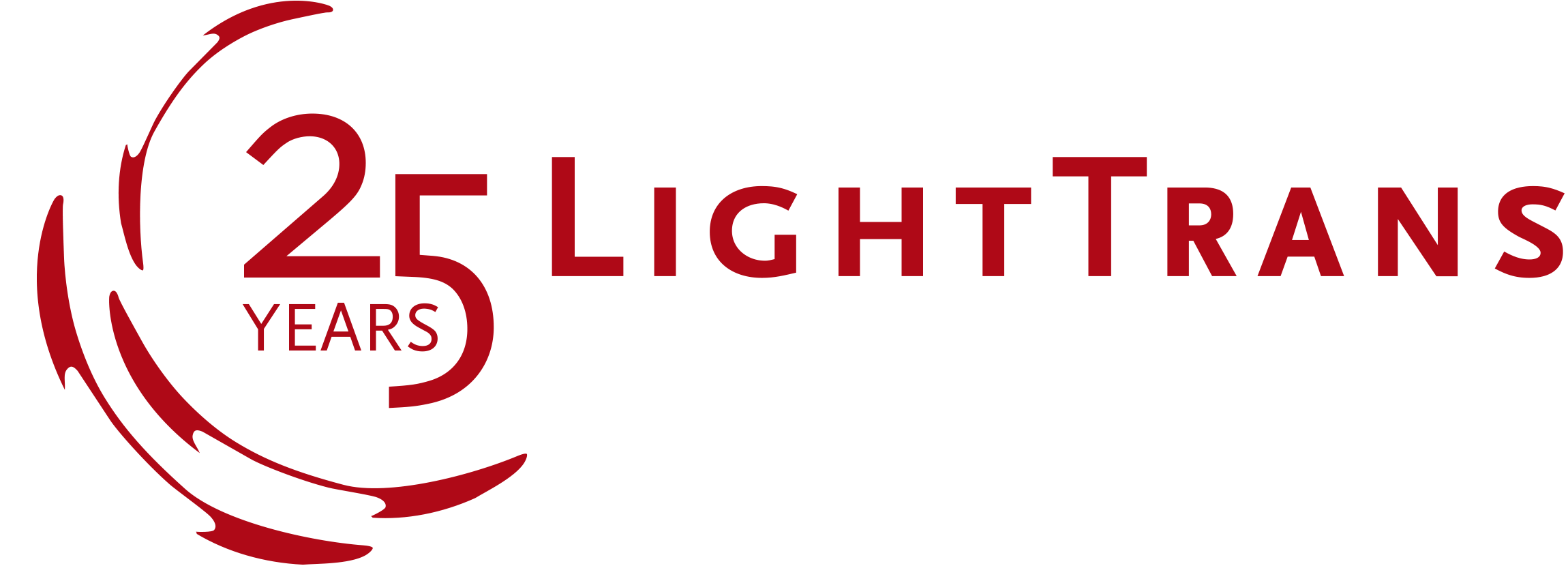Trainings Archives
Simulation & Optimization of Optical Gratings | Jena 16 – 17 April 2018
16 - 17 April 2018
Jena, Germany
9:00 am - 5:00 pm
This training covers the simulation capabilities of VirtualLab Fusion using the rigorous coupled wave analysis (RCWA) method for the investigation of periodic micro-structures. These simulation options can be integrated in the analysis of complex optical systems.
Topics:
- Modeling of periodic micro-structures:
- rectangular gratings
- blazed gratings
- slanted gratings
- splitter elements
- photonic crystals
- anti-reflection structures
- volume grating
- Application-oriented examples such as microscope and spectrometer setups
- Optimization options and investigations of parameter variations
- Investigations of field distribution within the structure
- Effects due to conical incidence, coatings and different polarization characteristics
- Configuration settings and numerical limitations
- Near field and efficiency analysis of the structure types listed above
Analysis and Design of Diffractive and Micro-Optical Systems Mountain View 16 – 18 October 2017
16 – 18 October, 2017
Mountain View, CA, USA
Requirements: Elementary skills in working with VirtualLab are recommended, in particular regarding use of the light path diagram for the setup and analysis of laser systems.
In this course we teach in a compact way the principles of the design of diffractive optical elements (DOEs) and gratings, and you will learn to apply VirtualLab Fusion efficiently for the solution of your design tasks in these fields.
The course starts with an overview of so-called unified optical design, of ray- and field-tracing techniques, and the general usage of VirtualLab. Participants will learn about components, sources and detectors; and simulation engines of VirtualLab. The setup and the simulation of optical systems is demonstrated by some examples.
The course will also introduce you to the analysis and optimization of diffractive beam splitters, diffractive diffusers and diffractive beam shapers with VirtualLab. Furthermore, the rigorous analysis and optimization of 2D and 3D grating structures with arbitrary surface and refractive index modulations will be discussed.
Introduction to VirtualLab Programming | Jena 25 September 2017
25 September, 2017
Jena, Germany
Requirements: Advanced knowledge about handling of VirtualLab Fusion. Basic knowledge in at least one programming language.
This advanced software training gives a detailed introduction into the object-oriented programming and customization features of VirtualLab Fusion. Participants will learn the programming of short code snippets for the generation of custom transmission functions, light sources, optical interfaces, detectors and components using the VirtualLab Programming Library. In addition, the programming of small modules for automatization of VirtualLab Fusion is demonstrated by various hands-on examples. Finally, the MATLAB interface as well as the batch-mode-operation feature of VirtualLab Fusion are discussed in detail. The goal of the course is that participants can program small modules and snippets for adaption of VirtualLab Fusion to their specific needs.
Analysis and Design of Diffractive and Micro-Optical Systems Jena 20 – 22 September 2017
20 – 22 September, 2017
Jena, Germany
Requirements: Elementary skills in using VirtualLab and in particular in using the light path diagram for the setup and analysis of laser systems are recommended.
The software course will give an introduction into the modeling and analysis of micro-structured and diffractive optical components with free-form refractive, diffractive and hybrid surfaces. It will show the analysis of diffractive optical elements, diffractive lenses, hybrid lenses and lens arrays including diffraction and interference effects. This includes especially the modeling of elements with customized surface profiles and refractive index distributions. The modeling and analysis of typical tolerances of micro-structured elements will be discussed on several examples. The course will introduce the optimization of diffractive beam splitters, diffractive diffusers and diffractive beam shapers by the Iterative Fourier Transform Algorithm (IFTA). Furthermore, micro-structured elements with features in the range of the wavelength require a rigorous analysis. During the course the modeling and rigorous analysis of 2D and 3D grating structures with arbitrary surface and refractive index modulations by the Fourier Modal Method (FMM) will be practiced. At the end, local and global parametric optimization algorithms of VirtualLab for the rigorous optimization of gratings will be introduced.
Introduction to VirtualLab Fusion | Jena 18 – 19 September 2017
18 – 19 September, 2017
Jena, Germany
Requirements: Users with limited or no knowledge of VirtualLab.
The software course gives an introduction into the principles of unified optical design and field & ray tracing methods of VirtualLab. Components of the user interface of VirtualLab are introduced and the different types of documents are discussed in detail. Participants will learn step by step about components, sources and detectors of VirtualLab. The setup and the simulation of optical systems are going to be practiced on various laser systems. The goal of the course is that participants be able to model and simulate simple optical systems.




